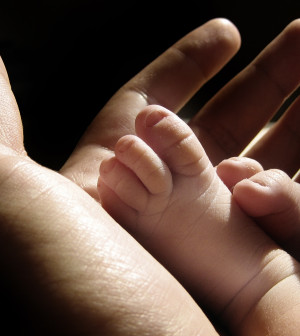- Calories, Not Meal Timing, Key to Weight Loss: Study
- Dietary Changes May Beat Meds in Treating IBS
- Screen Pregnant Women for Syphilis, Ob-Gyn Group Advises
- Even With Weight Gain, Quitting Smoking in Pregnancy Still Best for Health
- A-Fib Is Strong Precursor to Heart Failure
- One Neurological Factor Keeps Black, Hispanic Patients From Alzheimer’s Clinical Trials
- Managing Blood Sugar After Stroke Could Be Key to Outcomes
- Dozens of COVID Virus Mutations Arose in Man With Longest Known Case
- Blood Test Might Someday Diagnose Early MS
- Check Your Fridge for Trader Joe’s Fresh Basil, Linked to Salmonella
Bipolar Disorder Drug May Need Adjusting in Pregnancy, Study Finds


WEDNESDAY, Nov. 6A drug used to treat bipolar disorder becomes less effective during pregnancy, meaning that expectant mothers may require higher doses of the medication, a small new study suggests.
Bipolar disorder is a serious mental illness that causes extreme mood swings.
Northwestern University researchers looked at eight mothers before and after childbirth. They discovered that blood concentrations of the bipolar drug lamotrigine decreased during pregnancy as their metabolism rose.
Some women in the study had worsening symptoms of depression as the levels of lamotrigine in their blood fell, according to the study published Nov. 1 in the American Journal of Psychiatry.
“Now physicians change the dose of the drug in response to women’s symptoms worsening. We need to optimize their medication dosing so they stay well,” lead investigator Dr. Crystal Clark, an assistant professor of psychiatry and behavioral sciences at Northwestern University Feinberg School of Medicine, said in a university news release.
Pregnant women with bipolar disorder and reduced levels of lamotrigine in their blood are more likely to suffer depression rather than heightened feelings of happiness and energy (mania), according to the researchers.
“The safety of the fetus is at risk,” said Clark, who’s also a psychiatrist at Northwestern Memorial Hospital. “Pregnant women that are depressed are less likely to take care of themselves which often leads to poor nutrition, lack of compliance with prenatal care and isolation from family and friends. It has also been linked to premature births and babies with low birth weights among other poor birth outcomes.”
The study helps physicians understand how to increase their patients’ doses during pregnancy and then reduce them after the baby is born to avoid toxicity, Clark said.
About 4.4 million women in the United States have bipolar disorder, which is most common among women of childbearing age.
More information
The National Alliance on Mental Illness has more about pregnancy and bipolar disorder.
Source: HealthDay
Copyright © 2024 HealthDay. All rights reserved.










